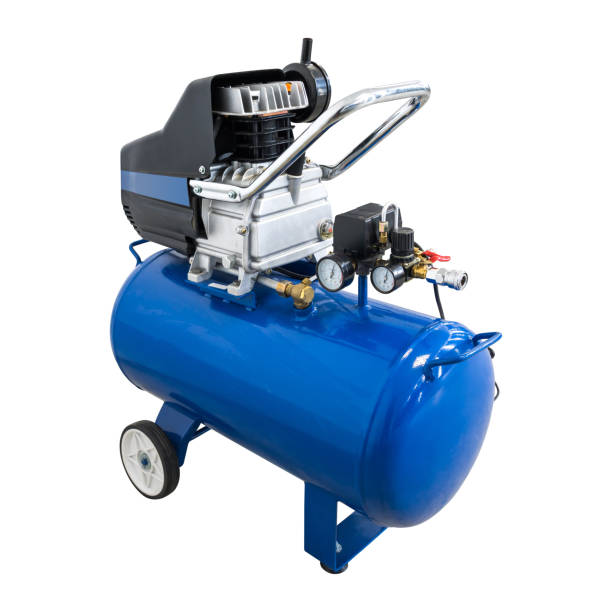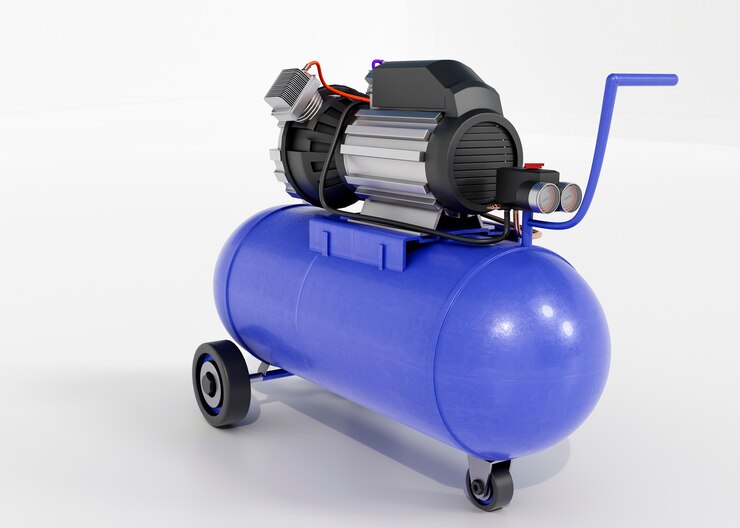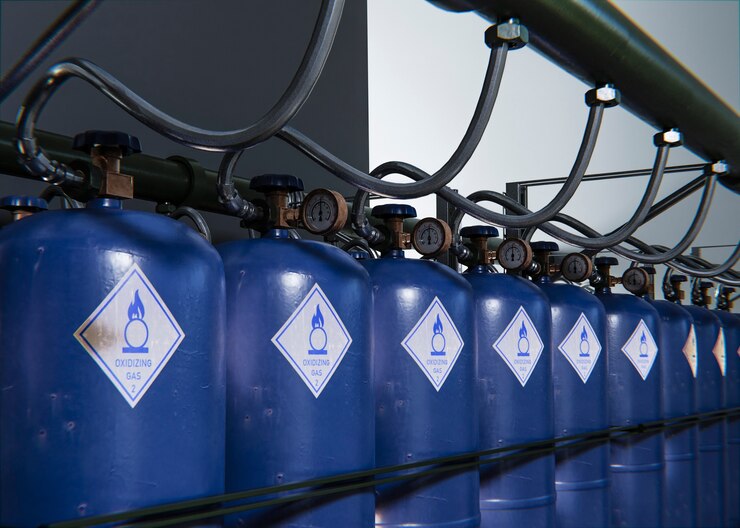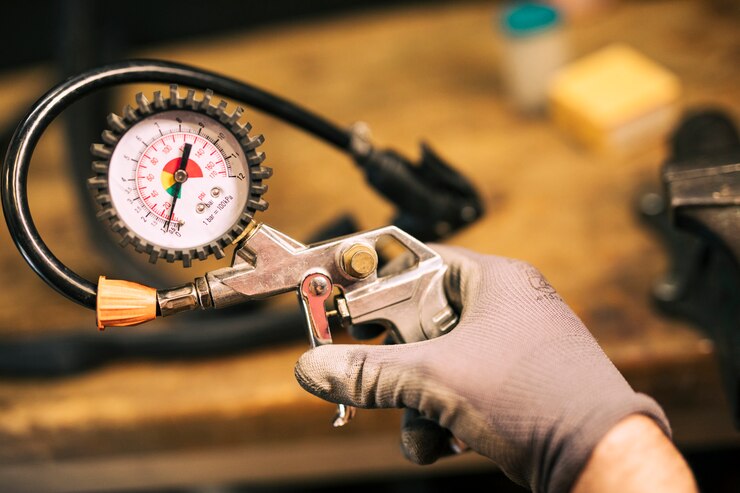How to Choose the Right Oil for Piston Air Compressor
The Ultimate Guide to Oil for Piston Air Compressors: Keep Your Machine Running Smoothly:
Using the correct oil is an essential element of providing the care and maintenance your piston air compressor needs to work efficiently. This in-depth tutorial delves deeply into the topic of Oil for Piston Air Compressor, giving you the knowledge necessary to select the ideal lubricant for your particular requirements. We’ll go over various oil kinds and walk you through the oil changing procedure.
The Lifeblood of Your Machine: Why Oil Matters for Piston Air Compressors
Similar to an automobile engine, the smooth operation of a piston air compressor is contingent upon the presence of oil. This lubricant is essential to making sure your compressor runs well and endures for many years. Now let’s explore the factors that make oil so crucial for your piston air compressor:
- Friction Fighter:
Your compressor’s internal pistons and other parts rotate quickly. By acting as a barrier of protection, oil reduces friction between these moving components. By doing this, you may prolong the life of your compressor by reducing wear and strain.
- Heat Dissipation:
A considerable amount of heat is produced during compression. Your compressor won’t overheat since oil circulation takes up and removes this heat. This prevents interior damage and aids in maintaining the ideal operating temperatures.
- Airtight Seal:
Oil creates a thin coating between the cylinder walls and piston rings to create an airtight seal. To stop compressed air from seeping back into the crankcase, this film functions as a seal. By doing this, you can be confident that your compressor will always run at the right pressure and provide the airflow your equipment and applications need.
- Corrosion Protection:
Your compressor may have quiet enemies in the form of moisture, which can cause rust and corrosion. Oil functions as a barrier, keeping internal parts dry and increasing the machine’s lifespan.
Picking the Perfect Potion: Selecting Oil for Your Piston Air Compressor:
Selecting the appropriate Oil for Piston Air Compressor is similar to choosing the ideal concoction in that it guarantees seamless functioning and extends the life of your apparatus. But it might be difficult to navigate the oil aisle with so many alternatives. The following is a summary of important variables to take into account while choosing the best oil for your compressor:
- Synthetic Oil:
Synthetic oil is the best option for heavy-duty applications and performs very well in hot weather. Because of its superior resistance to oxidation and breakdown, it is perfect for demanding applications and long running hours.
- Natural Oil:
Non-synthetic oil is less expensive and better suited for light-duty work in less demanding conditions. However, because of a higher breakdown rate, it can need more regular oil changes.
- Viscosity:
Think of oil as syrup; the consistency is important. The operating environment and recommended viscosity for your compressor will be specified in the handbook. In hotter areas, thinner oils (with lower SAE values) work better; in colder temperatures, thinner oils (with higher SAE numbers) perform better.
- Brand Suggestions:
Preferred oil brands or kinds are the knights in shining armour for many air compressor manufacturers. For best results, check your compressor’s handbook to determine if there are any brand-specific oil requirements.
You may select the oil that best meets the requirements of your piston air compressor by taking these considerations into account. Recall that choosing the proper oil for your compressor is an investment that will pay off over time by keeping it operating smoothly and effectively for many years to come.

DIY Maintenance: Changing the Oil in Your Piston Air Compressor:
To ensure maximum performance and lifespan, it is important to maintain your piston air compressor. An essential chore is changing the oil regularly. If you have the necessary equipment and skills, you may do this very simple operation at home. The following is a comprehensive guide to assist you with the oil changing procedure:
Preparation is Key:
- Assemble your materials:
Clean rags, a drain pan to collect old oil, fresh oil of the required type and viscosity (see your owner’s handbook), a funnel for adding new oil, and maybe a filter wrench if your compressor has a removable oil filter are all necessary.
- Warm Up the Engine:
Give the compressor a few minutes to operate before emptying the oil. Warm oil ensures a more thorough drain since it flows more readily.
- Safety first:
Before moving forward, make sure the compressor is fully off and disconnected from the power supply.
Draining the Old Oil:
- Where the Drain Plug Is:
To find out where the drain plug is on your particular compressor model, go to the owner’s handbook.
- Get Ready for Drainage:
To collect the used oil, place the drain pan precisely beneath the drain stopper.
- Drain the Oil Slowly:
Using a wrench or socket set, carefully remove the drain stopper. Let all of the used oil fall into the pan. This might need many minutes.
- Clean Up:
After the oil has drained, remove any spills near the drain plug area using a cloth.
Keeping the Oil Flowing Smoothly: Best Practices for Maintaining Piston Air Compressor Oil:
The oil in your piston air compressor is essential to its functioning. Maintaining your machine’s oil properly reduces wear and tear, maximizes performance, and increases machine longevity. The following are some suggested methods to maintain the highest quality of compressor oil:
- Regular Oil Changes:
It’s all about frequency! The suggested oil change interval—which usually occurs between 500 and 1000 hours of operation—can be found in your owner’s handbook. However, think about doing more regular adjustments if your compressor is used often or in tough situations.
- Select the Correct Oil:
Select the winner instead of settling with any oil! For recommended oil type (non-synthetic or synthetic) and viscosity (SAE grade), consult your handbook. The incorrect oil can cause wear and tear, damage, and a breakdown in functionality.
- Keep an eye on your oil levels:
Avoid letting them fall like a flat tire! Before each usage, check the oil level using the sight glass or dipstick on your compressor. Sustaining the correct quantity of oil guarantees sufficient lubrication and averts overheating.
- Examine the Oil Quality:
This is Important! Examine the oil’s condition for a time during oil inspections. Keep an eye out for indicators of deterioration such as discolouration, heavy dirt, or a metallic shine. These show that it’s time to change the oil to avoid damaging your compressor.
- Maintain a Clean Compressor:
Happy compressors (and oil) thrive in clean environments! Your oil’s disintegration might be sped up by dust and particles. To prevent dust and debris from entering the system, clean the compressor’s exterior and air intake regularly.
Storage of Oil:
Excessive temperatures are not kind to oil! Any remaining oil should be kept out of direct sunlight in a cold, dry area. Temperature extremes can alter the characteristics of the oil, reducing its usefulness. Your piston air compressor oil will keep its integrity and lubricate your machine efficiently if you adhere to these recommended guidelines. Your tasks will continue to operate smoothly and efficiently thanks to your compressor’s smooth operation, long lifespan, and excellent performance.
The Power of Lubrication: Benefits of Using Oil for Piston Air Compressors:
Consider oil for piston air compressor as an industrious employee, continuously producing compressed air to fuel your instruments and undertakings. However, for your compressor to operate well and endure for many years to come, it requires the proper assistance, just like any other diligent person. This is where oil comes into play; it’s a lubricant that gives your machine a host of advantages. Using oil strengthens your piston air compressor in the following ways:
- Reduced Friction, Longer Life:
Your compressor is not an exception to the rule that friction is the enemy of all machinery. By acting as a barrier of protection, oil reduces friction between moving elements, such as cylinders and pistons. This prolongs the life of your compressor and saves you money on repairs and replacements by drastically reducing wear and tear.
- Cooler Operation, Optimal Performance:
Heat is produced during the compression process, and if it is not managed, it may be harmful. Heat is absorbed and dispersed throughout the compressor by oil, which functions as a heat sink. This prevents overheating and guarantees peak performance by keeping your system running within a safe temperature range.
- Improved Efficiency, Greater Power:
The effectiveness of your compressor might be hampered by friction and too much heat. Oil helps your compressor produce compressed air with greater energy conversion by lowering friction and keeping the operating temperature low. This results in more efficiency and provides the necessary power for your air tools and applications.
Conclusion:
By understanding the importance of oil and following the recommended maintenance practices outlined in this guide, you can ensure your piston air compressor operates at peak performance for years to come. Choosing the right oil is crucial, and LEIYAO Compressor stands out as a reliable brand offering high-quality oil formulations specifically designed for piston air compressors.



